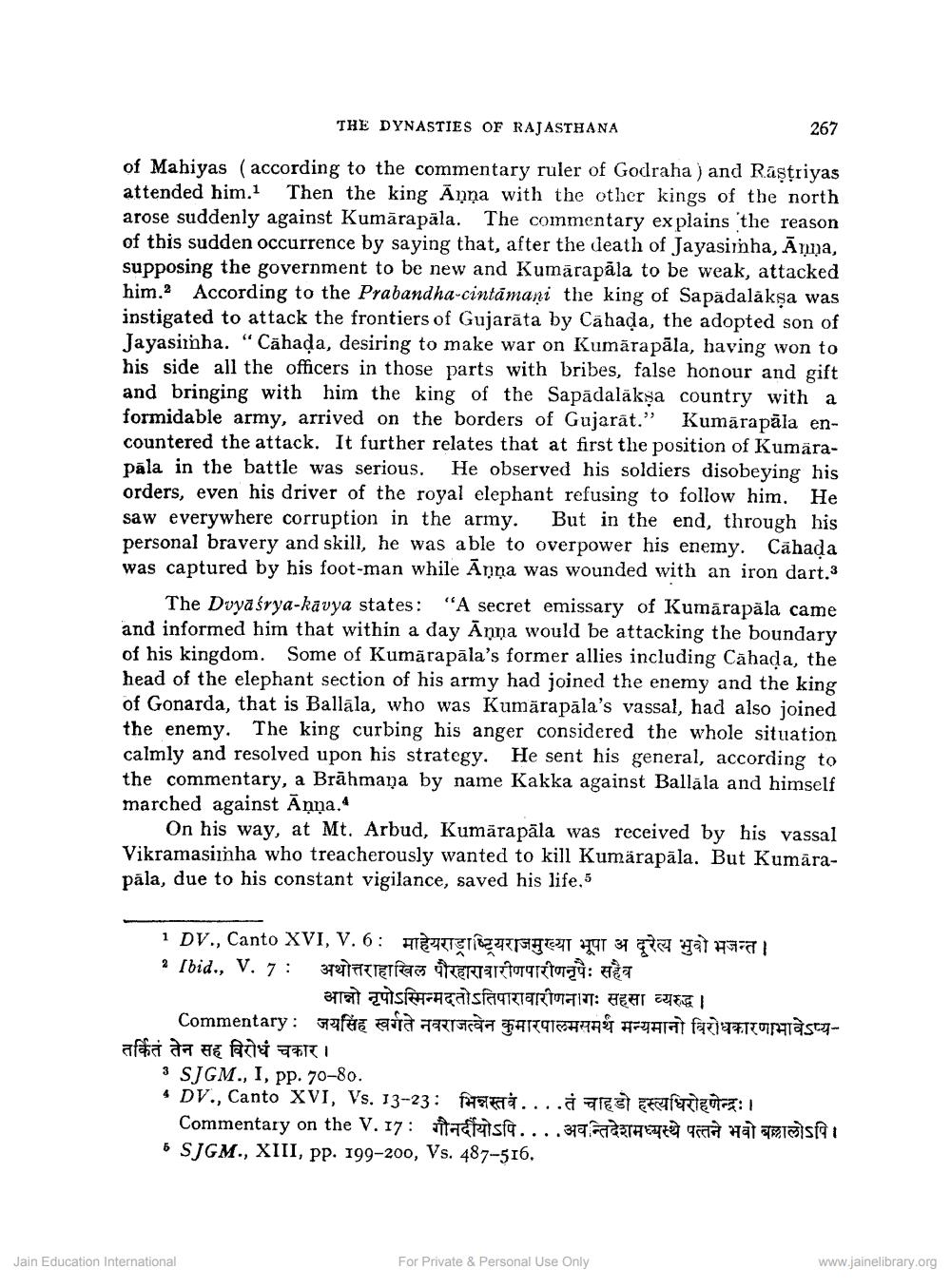________________
THE DYNASTIES OF RAJASTHANA
267
of Mahiyas (according to the commentary ruler of Godraha) and Rastriyas attended him. Then the king Anna with the other kings of the north arose suddenly against Kumārapäla. The commentary explains the reason of this sudden occurrence by saying that, after the death of Jayasimha, Ama, supposing the government to be new and Kumārapāla to be weak, attacked him. According to the Prabandha-cintamani the king of Sapädalākṣa was instigated to attack the frontiers of Gujarāta by Cahada, the adopted son of Jayasimha. “Cahada, desiring to make war on Kumārapāla, having won to his side all the officers in those parts with bribes, false honour and gift and bringing with him the king of the Sapādalākṣa country with a formidable army, arrived on the borders of Gujarat." Kumāra pāla encountered the attack. It further relates that at first the position of Kumārapāla in the battle was serious. He observed his soldiers disobeying his orders, even his driver of the royal elephant refusing to follow him. He saw everywhere corruption in the army. But in the end, through his personal bravery and skill, he was able to overpower his enemy. Cahada was captured by his foot-man while Anna was wounded with an iron dart.3
The Duyaśrya-kavya states: "A secret emissary of Kumārapäla came and informed him that within a day Anna would be attacking the boundary of his kingdom. Some of Kumārapāla's former allies including Cahada, the head of the elephant section of his army had joined the enemy and the king of Gonarda, that is Ballala, who was Kumāra pala's vassal, had also joined the enemy. The king curbing his anger considered the whole situation calmly and resolved upon his strategy. He sent his general, according to the commentary, a Brāhmaṇa by name Kakka against Ballala and himself marched against Āņņa.
On his way, at Mt. Arbud, Kumārapāla was received by his vassal Vikramasimha who treacherously wanted to kill Kumärapāla. But Kumārapala, due to his constant vigilance, saved his life.5
1 DV., Canto XVI, V. 6: HEARTET SEAT 1497 37 ata ya 45771 * Ibid., V. 7: 37TTTTTETES TERTETtorer toray: 2
आन्नो नृपोऽस्मिन्मदतोऽतिपारावारीणनागः सहसा व्यरुद्ध । Commentary: gafaz ajta asiaa FATTCHA yara fazia TOHTÀ SEFतर्कितं तेन सह विरोधं चकार ।
3 SJGM., I, pp. 70-80. 4 DV., Canto XVI, Vs. 13-23: 7777 .... JEST R EUS: 1
Commentary on the V. 17: fitotisa....379,- Taut a s 5 SJGM., XIII, pp. 199–200, Vs. 487-516.
Jain Education International
For Private & Personal Use Only
www.jainelibrary.org




